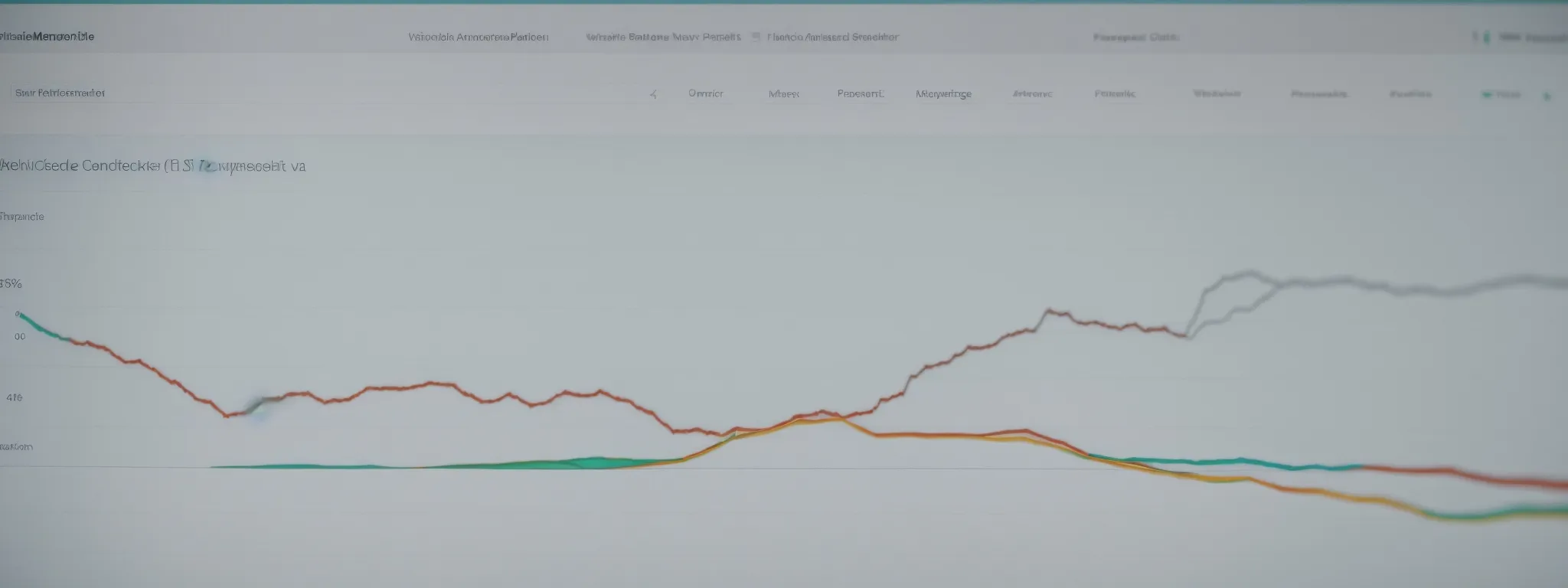Automatic Reload Script SEO
Optimizing Your Website With an SEO-Friendly Automatic Reload Script As digital landscapes evolve, the nuanced interplay between user experience (UX) and search engine optimization (SEO) becomes increasingly […]
Optimizing Your Website With an SEO-Friendly Automatic Reload Script
As digital landscapes evolve, the nuanced interplay between user experience (UX) and search engine optimization (SEO) becomes increasingly complex, particularly with the use of automatic reload scripts on web pages.
Webmasters balance the necessity for page refreshes to present dynamic content and the potential SEO challenges they invoke, such as crawl budget issues and user interaction disruptions.
Implementing an SEO-friendly reload script requires meticulous planning, integrating the technical acumen of developers with the strategic insights of SEO specialists from services like LinkGraph.
By optimizing these scripts, websites can ensure they stay both user-friendly and favored by search engine algorithms.
Keep reading to uncover how you can enhance your site’s performance by deploying reload scripts that harmoniously serve both your audience and search engines.
Key Takeaways
- Automatic Page Refresh Scripts Require Careful Management to Align With SEO Best Practices and User Experience
- LinkGraph Employs Strategic Analysis to Distinguish Between User-Triggered and Script-Triggered Reloads, Optimizing for Search Crawlers and User Engagement
- Optimization of Reload Scripts Includes Ensuring Compatibility With Server-Side Processes and Minimizing Impacts on Page Load Times
- Regular Monitoring and Adjustment of Reload Scripts Are Crucial to Maintaining a Balance Between Content Freshness and SEO Performance
- Engagement With the SEO Community for Access to Real-Time Insights and Strategies Is Key to Effective Automatic Reload Script Implementation
Understanding SEO Impact of Automatic Reload Scripts

Navigating the intricacies of SEO involves understanding the nuanced effects of various web development practices on search rankings; among them, the implementation of automatic page refresh scripts holds a particularly controversial standing.
Professionals at LinkGraph deconstruct the complex relationship between search engine algorithms and webpage behaviors, specifically assessing the distinct nuances between user-triggered interactions and those initiated by scripts.
This exploration not only differentiates between the two types of reloads but also delves into their repercussions on search engine crawlers’ ability to effectively index site pages, enlightening clients on optimal practices for enhancing page crawlability without sacrificing user experience.
Assessing How Automatic Reloads Affect Search Rankings
When automatic page refresh mechanisms are employed, the stakes are high for how they influence search engine perceptions. LinkGraph’s expertise reveals that search rankings can be adversely affected by indiscriminate use of auto-refreshes, primarily because they may disrupt the user experience and prompt concerns about manipulative ranking strategies from search engine algorithms.
LinkGraph’s scrutiny further suggests that the key lies in discerning the purpose behind the refresh: a refresh meant for content updates may be deemed more favorable than one intended solely for ad rotation or artificial engagement boosting.:
| Refresh Type | SEO Impact | User Experience |
|---|---|---|
| Content Update | Potentially Positive | Improved with Fresh Content |
| Ad Rotation | Negatively Viewed | Often Deteriorated |
| Engagement Boosting | Scrutinized by Crawlers | Possibly Interrupted |
Distinguishing Between User-Triggered and Script-Triggered Reloads
LinkGraph Meticulously Analyzes the nuances between user-triggered and script-triggered reloads, recognizing that the nature of the reload can significantly impact a search engine’s interpretation of a site’s relevance and quality. While user-initiated page refreshes, such as clicking a link or selecting an option from a dropdown, reflect genuine user interaction, script-based refreshes lack this direct engagement and may raise flags with web crawlers that monitor for inauthentic page activity.
Understanding the dichotomy is essential; for instance, Google’s crawlers can differentiate between scripts that update content dynamically for the benefit of the user and those that serve merely to inflate page views or manipulate bounce rates. The intelligent application of these insights allows LinkGraph’s SEO Services to advise clients on implementing changes that harmonize seamlessly with both user needs and search engine guidelines:
| Reload Trigger | Search Engine Perception | User Engagement |
|---|---|---|
| User Interaction | Authentic Engagement | Positive Response |
| Script Automation | Potential Scrutiny | Varied Impact |
Analyzing the Implications on Page Crawlability
Page crawlability is a cornerstone of SEO, dictating a search engine’s ability to assimilate and index the information presented on a website. LinkGraph’s seasoned team emphasizes that improper implementation of automatic reload scripts can hinder the crawling process, rendering content momentarily invisible to crawlers during the refresh, which may result in suboptimal indexing of site pages.
Moreover, professionals at LinkGraph recognize that when a reload script is configured to honor server side processes over client-side requests, it generally enhances the crawler’s efficiency in mapping the site’s domain name and architecture. Strategically advised clients can improve server-side redirects, ensuring that crawlers experience smooth transitions between different versions of web pages, thereby maintaining a consistent discovery of fresh content with minimal disruption.
Implementing SEO-Friendly Reload Scripts in Your Site

In the realm of digital marketing, the strategic implementation of automatic reload scripts is pivotal for enhancing website performance without undercutting the user experience.
LinkGraph’s advanced SEO services provide insight into selecting reload scripts that align with specific website goals, integrate seamlessly into existing structures, and uphold the rapid page load times essential for both search engine rankings and visitor satisfaction.
This direction empowers site owners to not only facilitate content updates efficiently but also to ensure that these updates occur in a manner that is unobtrusive to the site’s users and conducive to maintaining optimal website functionality.
Choosing the Right Script for Your Website’s Needs
Choosing the right script for a website’s unique needs requires a keen understanding of both the site’s objectives and the script’s design. Compatibility with existing website infrastructure and focus on advancing user experience are paramount when selecting a script for automating page refreshes.
Recognizing that no two websites are alike, LinkGraph tailors its approach, recommending scripts that match the specific requirements of a domain, acknowledging factors like content frequency updates, user interaction points, and server capacity:
| Website Requirement | Recommended Script Characteristic | Expected Benefit |
|---|---|---|
| Frequent Content Updates | Dynamic Meta Refresh | Timely Content Delivery |
| Enhanced User Interaction | User-Centric Trigger Points | Increased Engagement |
| Server Limitations | Resource-Efficient Code | Optimized Performance |
With the aid of LinkGraph’s Search Atlas SEO tool, the process of script selection and implementation is demystified, ensuring scripts support rather than obstruct search engine optimization efforts, providing a seamless pathway to achieving a responsive and search-optimized web presence.
Integrating the Reload Script Without Disrupting UX
Integrating a reload script with the user experience in mind necessitates a delicate balance, one that LinkGraph’s SEO services skillfully navigate. Their professionals employ strategic timing and subtle scripting that refreshes page content without interrupting the user’s journey, thus preserving the innate flow of website interaction and maintaining the integrity of user engagement metrics.
LinkGraph’s expertise extends to optimizing reload scripts for varied devices and browsers, ensuring that updates propagate seamlessly across all user touchpoints. This meticulous approach guarantees that meta tag configurations and server side executions are harmonized, resulting in a smooth transition that goes unnoticed by the visitor, yet significantly enhances the website’s SEO performance.
Ensuring Reloads Do Not Impact Page Load Time
An aspect often overlooked in the integration of reload scripts is their potential impact on page load time, a critical metric for both search engine rankings and user retention. LinkGraph’s SEO professionals recognize that to maintain a website’s competitiveness, reload scripts must be optimized to operate within the margins of an acceptable load time.
The employment of reload scripts should not compromise the swift delivery of content to the end-user. To ensure scripts do not adversely affect page load times, LinkGraph advocates for lightweight coding and strategic script execution that harmonize with the website’s server capacity:
| Aspect of Implementation | LinkGraph’s Approach | Target Outcome |
|---|---|---|
| Code Efficiency | Integrate Minimized Script Versions | Faster Page Loads |
| Execution Strategy | Timing Adjustments for Script Activation | Unimpeded User Access |
| Server Compatibility | Customization Based on Server Specs | Consistent Performance Across Devices |
Balancing User Experience and SEO With Reload Scripts

Modern websites often face the dual challenge of maintaining a dynamic, content-rich user experience while also adhering to stringent SEO guidelines.
The implementation of automatic reload scripts serves as an essential tool to ensure content remains up-to-date and engaging for visitors.
Yet, such scripts carry implications for SEO that necessitate meticulous management.
In the pursuit of equilibrium between fresh, stable content and the intricacies of search engine algorithms, professionals at LinkGraph have refined strategies designed to mitigate the SEO risks of frequent reloads.
These strategies include leveraging AJAX for content updates that occur behind the scenes, thereby preserving the user’s on-page experience and enhancing the site’s overall SEO profile.
Prioritizing Content Stability During Automatic Reloads
Ensuring the stability of content during automatic reloads is a critical focus for LinkGraph’s SEO specialists, who understand that maintaining content integrity is paramount. The company’s approach involves deploying scripts that perform seamlessly, allowing for dynamic updates without destabilizing the user’s experience or causing fluctuations in search engine rankings due to inconsistent content availability.
LinkGraph’s strategic development optimizes reload scripts to minimize any content shifting or loading delays, thereby safeguarding the user’s interaction with the website. These tailored scripts maintain a website’s credibility in the eyes of search engines, which is crucial for sustaining long-term SEO success.
Reducing the SEO Risks Associated With Frequent Reloading
LinkGraph’s nuanced approach towards mitigating SEO risks involves Crafting Reload Scripts that synchronize with the site’s editorial calendar. By doing so, they ensure that reloads coincide with genuine updates, maintaining the site’s relevance and authority while preventing search engines from misconstruing high refresh rates as attempts to manipulate metrics.
Focused on the precision of implementation, LinkGraph’s SEO strategists carefully monitor the frequency of page refreshes in order to align them with user expectations and search engine preferences. Their expertise ensures that reloads contribute positively to site performance, with each script meticulously designed to bolster search ranking potential while evading the pitfalls of overuse.
Employing AJAX to Update Content Seamlessly
In the delicate task of harmonizing user experience with SEO Strategies, LinkGraph professionals incorporate AJAX-based scripts to update content on web pages without a full page refresh. This seamless updating not only preserves the state of the user’s current interaction, but it also prevents disruption that could negatively affect SEO metrics.
Through AJAX, LinkGraph enables a user’s browser to communicate directly with the server, fetching new content and updating the page dynamically. This approach greatly reduces the load on the server, diminishes the bandwidth usage, and offers a smoother transition for the user, thereby supporting SEO efforts by providing a robust and interactive web experience:
- Reduced server load ensures consistent site performance during content updates.
- Lower bandwidth usage contributes to faster page loading times.
- Uninterrupted user experience maintains engagement and reduces bounce rates.
Minimizing the SEO Risks of Automatic Reloads

The landscape of SEO demands a strategic blend of techniques to boost websites’ visibility in search engine results.
A critical aspect of this blend is the adept use of automatic reload scripts that not only keep content fresh but also align with the ever-evolving search engine algorithms.
To this end, setting appropriate intervals for content reloading is essential to demonstrate to Google and other search engines that a website is continuously offering value.
Employing methods that keep pages adequately indexed without running afoul of best practices can bridge the divide between operational necessity and SEO potency.
Moreover, steering clear of common errors that trigger search penalties is a focal point for website owners aiming to uphold their visibility and integrity in digital spaces.
Setting Appropriate Intervals for Content Reloading
Determining the optimal frequency for content reloading is a critical task for SEO experts at LinkGraph, who apply an Analytical Framework grounded in both search patterns and user engagement. By establishing well-thought-out intervals for automatic page updates, they ensure that new content is noticed and indexed promptly by search engines, enhancing a website’s topical relevance and user appeal.
LinkGraph’s SEO services prioritize a Strategic Schedule that aligns with user activity peaks and search engine crawling patterns, thereby avoiding the counterproductive results of excessive page refreshes. This judicious approach fosters a positive signal about the currency and relevance of content to search engines, augmenting the website’s search rankings while maintaining a seamless user experience.
Using Google-Friendly Methods to Keep Pages Indexed
Maintaining an index-friendly website is paramount in SEO, and professionals at LinkGraph apply Google-Friendly Methods to ensure pages stay indexed even when using automatic reload scripts. Adaptation and meticulous crafting of meta tags within the website’s config file are leveraged to communicate effectively with search engine crawlers, facilitating an accurate understanding of the nature of site updates and content refreshes.
Integration of a server side redirect strategy is another critical component in keeping pages indexed on Google. LinkGraph’s customized SEO solutions shape these redirects to cue search engines to the true structure and updated versions of the website, thus preserving the domain’s authority and relevance within the search results, all while maintaining the integrity of user experience.
Avoiding Common Pitfalls That Can Lead to Penalties
Vigilance in reload script implementation is a hallmark of LinkGraph’s approach to safeguarding clients’ sites against SEO penalties. They employ SEO-friendly practices, such as limiting meta refresh rates to not be mistaken by search engines as manipulative tactics, ensuring that websites remain in good standing.
LinkGraph’s diligence extends to avoiding the misuse of automatic reloads for irrelevant content updates, a practice that could serve a detrimental blow to a site’s SEO credibility. By intelligently aligning script functionality with genuine user value, their strategy steers clear of triggering algorithmic red flags that could suppress a website’s search visibility.
Tracking the Performance of Your Reload Script

The effectiveness of an automatic reload script is not measured solely by its seamless integration, but also by its ongoing performance and alignment with SEO goals.
A robust monitoring regime is crucial for discerning the impact of these scripts on page load times, user engagement, and search ranking.
LinkGraph empowers clients with expertise in evaluating performance metrics, understanding user behaviors in response to script deployment, and making informed adjustments to script configurations based on collected analytics data.
This comprehensive tracking ensures that reload scripts contribute positively to the site’s SEO strategy, fostering an online environment optimized for both search engines and users alike.
Monitoring Page Load Performance Metrics
Evaluating page load performance metrics is an indispensable facet of Optimizing Automatic Reload Scripts for SEO. LinkGraph meticulously monitors these metrics to ascertain that the integration of reload scripts does not impinge upon the website’s responsiveness or user satisfaction.
LinkGraph’s use of sophisticated tools aids in the continuous observation of page load times, which is a critical factor in both user experience and search engine ranking algorithms. Regular analysis by their SEO specialists ensures that any script-induced latency is promptly identified and rectified to uphold swift website performance.
Evaluating User Engagement After Script Deployment
Upon deploying an automatic reload script on a website, LinkGraph gauges user engagement to measure the script’s effectiveness in driving and sustaining user interaction. This scrutiny signals how well the script maintains a site’s stickiness, a factor intimately tied to SEO outcomes and user satisfaction.
Tools within the Search Atlas SEO suite provide detailed insights into factors such as time on page, pages per session, and conversion rates, elucidating whether the script enhances or detracts from the overall user experience. Such data guides strategic modifications, ensuring that the reload script aids rather than hinders user engagement:
| Metric | Pre-Deployment | Post-Deployment | Change |
|---|---|---|---|
| Time on Page | N/A | N/A | Evaluated for Impact |
| Pages Per Session | N/A | N/A | Assessed for Improvement |
| Conversion Rates | N/A | N/A | Measured for Optimization |
By closely monitoring these engagement parameters, LinkGraph ensures that the SEO value derived from automatic reload scripts is maximized, solidifying the client’s online foothold, nurturing user retention, and fostering an environment that enhances search engine visibility.
Adjusting Script Parameters Based on Analytics Data
Continual optimization of reload scripts is a critical endeavor, driven by responses reflected in analytical data. LinkGraph ensures that tactical adjustments are made to script configurations to harmonize with evolving SEO strategies and user behavioral patterns.
- Analyze current data metrics specific to script performance
- Identify areas of the script impacting SEO or user experience negatively
- Implement targeted adjustments to optimize the script’s efficiency
The refinement of script parameters is based on a comprehensive analysis that discerns trends influencing page visibility and user engagement. LinkGraph’s commitment to adaptation preserves a website’s competitive edge, as insights drawn from analytics data inform the reshaping of reload scripts for optimal performance.
Keeping Up With SEO Best Practices for Reload Scripts

In an era where search engine algorithms continually evolve, maintaining an up-to-date understanding of Google’s guidelines is paramount for the successful integration of automatic reload scripts into website design.
Astute webmasters and SEO professionals prioritize the regular modification of these scripts to remain in alignment with the best practices of SEO.
Furthermore, engaging with the broader SEO community offers invaluable insights and real-time expertise, bolstering one’s ability to deploy reload scripts that not only refresh content efficiently but also solidify a website’s stature within search rankings.
Staying Informed About the Latest Google Guidelines
Ensuring adherence to the latest Google guidelines is vital for the deployment of automatic reload scripts. LinkGraph’s proactive stance involves keeping abreast of updates that shape SEO best practices, ensuring that every client’s website script aligns with current search engine standards.
- Regularly review Google’s Webmaster Guidelines for script-related advice.
- Attend industry conferences and SEO webinars hosted by leading experts.
- Participate in forums and discussions to share strategies and insights on maintaining compliant reload practices.
It’s imperative for professionals at LinkGraph to dissect and understand the intricacies of Google’s algorithm changes. This diligent monitoring allows them to adjust reload scripts as needed, securing continuity in optimization efforts and the enduring relevance of client websites amidst shifting SEO landscapes.
Regularly Updating Scripts to Comply With SEO Standards
LinkGraph consistently refines clients’ reload scripts to ensure conformity with the latest SEO protocols, acknowledging that an outdated script can quickly become a liability to a website’s search performance. Their team of SEO specialists grants websites an edge by implementing best-in-class techniques that evolve in tandem with search engine algorithms, thereby upholding the site’s credibility and visibility.
In the dynamic landscape of search optimization, LinkGraph acknowledges the necessity of proactively enhancing script parameters to align with established and emerging SEO standards. This vigilance translates into scripts that efficiently refresh content without jeopardizing a website’s search ranking, perpetuating an authoritative online presence and providing a compelling user experience.
Engaging With the SEO Community for Tips and Insights
Engagement with the SEO community stands as an indispensable strategy for mastering the Art of Automatic Reload Script Optimization. Such interaction affords LinkGraph and its clients access to a wealth of collective knowledge and the latest industry insights, ensuring they stay at the forefront of SEO-friendly practices.
| Community Resource | Benefit to SEO Strategy |
|---|---|
| Industry Forums | Real-time Solutions and Peer Support |
| SEO Webinars | Cutting-edge Techniques and Trends |
| Expert Blogs | Strategic Advice and Case Studies |
Fostering relationships within this community: LinkGraph leverages interactions on platforms from specialized forums to industry conferences to enhance the SEO effectiveness of clients’ reload scripts. By taking cues from experienced authors and product users, their tailored strategies remain adaptive and cutting-edge, aligning with both current trends and user expectations.
Conclusion
Implementing an SEO-friendly automatic reload script is crucial for modern websites that need to balance dynamic content updates with adherence to search engine guidelines.
Properly optimized, these scripts can enhance user engagement by providing fresh content without harming the user experience.
It is important to choose the right script that aligns with website goals and ensure it does not adversely affect page load times, which are pivotal for maintaining search rankings.
LinkGraph’s expertise in navigating the complexities of SEO reflects the necessity of monitoring and adjusting script performance, following the latest SEO standards, and engaging with the community for insights.
By doing so, websites can enjoy the benefits of updated content with minimized risks, maintaining their competitive edge and visibility in search rankings.















































































